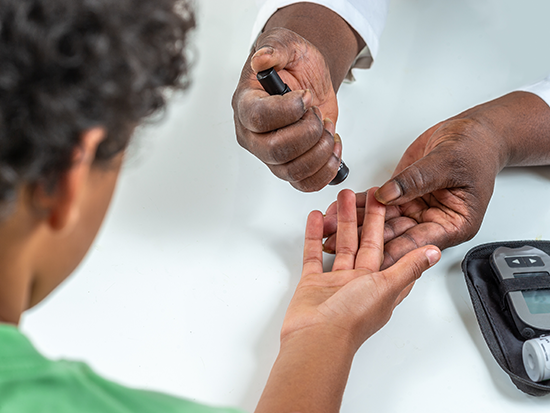By Emma Shepard
UAB News
The prevalence of Type 2 diabetes in youths is increasing in the United States, primarily among minorities, with Black and Hispanic youths showing the greatest increase. Neither the reason for the increase nor the mechanism underlying the disproportionate risk in minority youths is known.
Researchers at the University of Alabama at Birmingham have received more than $3.7 million from the National Institutes of Health to study the increasing prevalence of diabetes in youths as part of a nationwide consortium. Barbara Gower, interim chair and professor in the UAB Department of Nutrition Sciences, and Dr. Ambika Ashraf, director of the Division of Pediatric Endocrinology and Diabetes at UAB and Children’s of Alabama, will lead the UAB site.
The study is part of a project designed to identify the predictors of Type 2 diabetes in youths. UAB, located in the United States diabetes belt and home to the UAB Comprehensive Diabetes Center and Diabetes Research Center, was one of 15 institutions selected to participate.
“Our research aims to further understand health disparities in diabetes prevalence, as well as study the impact of particular risk factors on the conversion of pre-diabetes to Type 2 diabetes,” Ashraf said. “This knowledge would allow us to better treat children, especially minority children, who have prediabetes.”
Prediabetes is a serious health condition where blood sugar levels are higher than normal, but not high enough yet to be diagnosed as Type 2 diabetes.
Over the course of the project, which will end in November 2027, researchers hope to enroll 1,500 to 3,000 youths who are at risk for diabetes. The main objective of the study is to identify factors that predict conversion to Type 2.
All participants will be nondiabetic, but at risk, at the time of recruitment and baseline testing. The team of researchers will record body composition, beta-cell function, insulin sensitivity, diet, physical activity, psycho-social factors, the intrauterine environment, genetic polymorphisms related to diabetes risk and other factors that may affect risk for Type 2 diabetes.
Co-investigators include UAB Department of Biostatistics professors Suzanne Judd, Inmaculada “Chichi” Aban and Hemant Tiwari, as well as Department of Psychology professor Sylvie Mrug and former postdoctoral fellow Kristen Allen Watts, Department of Health Care Organization and Policy; vice chair for Research and professor Bisakha “Pia” Sen; and Department of Nutrition Sciences associate professor Paula Chandler-Laney.





